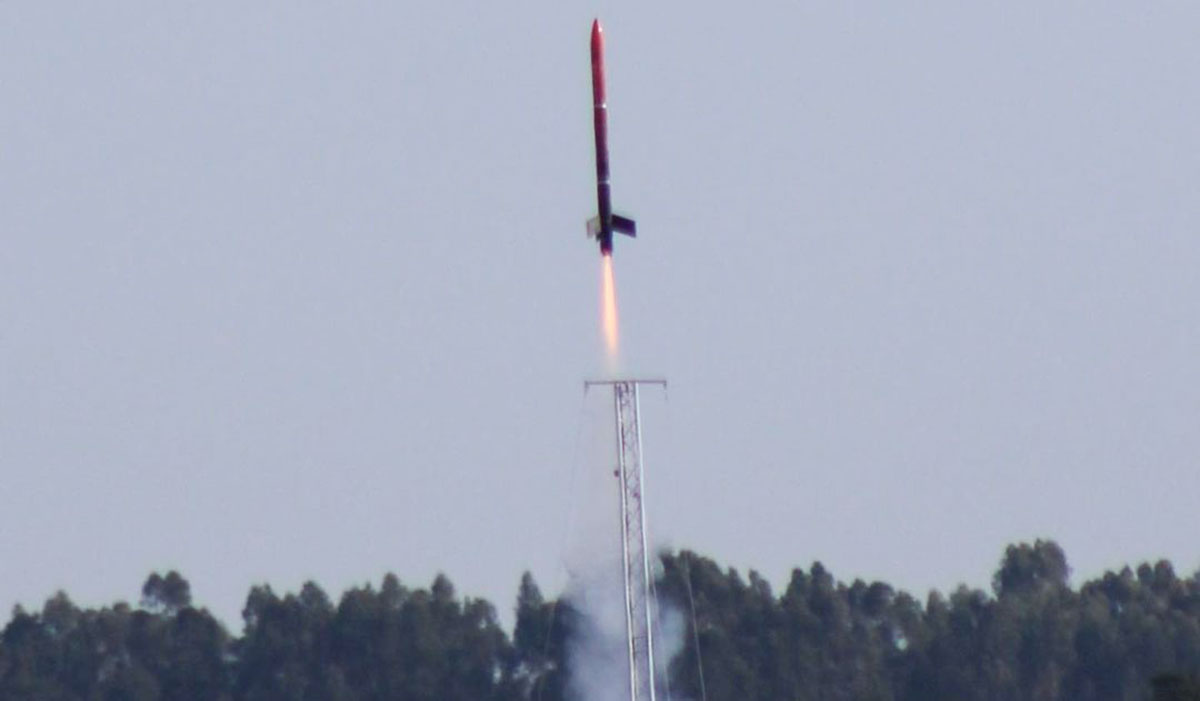LeoFly is the first French team to launch a rocket in the European Rocketry Challenge, a competition for European engineering and science students promoted by the Portuguese Space Agency. For its first launch from Portugal, LeoFly’s Helios rocket lifted off as planned and experienced a nominal flight. This performance represents the third-best result in EuRoC’22’s Flight Award section and 6th best performance overall, among 17 teams that got up their rockets in Portugal’s air.
It’s a great premiere for ESILV Engineering School and De Vinci Higher Education’s aeronautics and aerospace student club. The French team LeoFly successfully launched and recovered its “Helios” rocket at EuRoc’22. They became the first French team to compete in the European Rocketry Challenge, Europe’s first rocketry competition hosting teams and students from all over Europe to launch vehicles that they have designed and built.
LeoFly is a student rocketry team with the long-term goal of designing, building, and flying increasingly performant rockets that would eventually become capable of reaching a precisely desired altitude, all while learning and teaching others about aerospace technologies, through competitions and project-based pedagogy in engineering school.
Leofly’s EuRoC journey
From 11 to 18 October 2022, the third edition of the European Rocketry Challenge brought to Ponte de Sor and Campo Militar de Santa Margarida 25 student teams representing at least 15 different nationalities. ESILV’s LeoFly was one of the European teams to compete and carry out a nominal flight, the fifth one since the creation of the association, in 2015. It came among the 19 teams that managed to successfully launch their rockets during the competition.
For the occasion, LeoFly shared each day of its EuRoC journey on its Instagram.
Day 1
Day 3
Day 4
Day 5
Day 6
Day 7
LeoFly finished as the third-best team at EuRoc22 for its flight performance, and took the 6th place in the overall ranking, among the 17 teams that successfully launched their rockets. The Flight Award that measures the degree of merit in meters away from the target apogee, but also by the state of the rocket after recovery. This nomination recognizes LeoFly’s achievement in concept, simulation, system integration, control, and practical realization.
This post was last modified on 19 October 2022 3:34 pm






